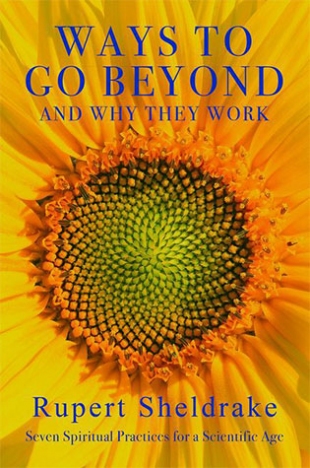"Most people do not think of sports as spiritual practices; sports seem supremely secular. Yet in modern secular societies, sports may be one of the most common ways in which people experience the self-transcendence that can come through being in the present. A meditator may find his mind wandering and only occasionally come back into a full sense of presence, but a football player in an important match is completely in the present, or else he is out of the game. Someone skiing downhill at sixty miles an hour has to be completely focused, as does a surfer on a gigantic wave, or a free climber on a rock face with no ropes, or a hunter stalking a deer when the slightest noise or visible movement might cause the quarry to run away.
"Surprisingly, the word 'sport' is indirectly derived from the Latin root portare, meaning to carry, as in our English words 'export' (to carry out), 'deport' (to carry away), and 'disport' (away from carrying) — which came to mean to amuse oneself, or to make merry, or to play games. Sport comes from disport.
" 'Play' comes from the Old English plega, to frolic. The primary English meanings are to exercise oneself, or to act or move energetically. Play also means to engage in a game, or to play for stakes as in gambling, or to take part in a sport, or to play a musical instrument, or to perform on the stage, as in a play. Not only humans and nonhuman animals play: flames and fountains play too, metaphorically, through their freedom and spontaneity, as does moving light in 'the play of light.'
"The Middle English word gamen, related to the Old High German gaman, merriment, meant a game or a sport, and came to mean gaming in the sense of gambling. Game also means wild animals caught for sport, as in 'game pie.'
"All these words have a wide range of meanings, but what they have in common is being away from the usual business of life. The philosopher David Papineau, himself a keen sportsman, has thought more about sports than most people, and has summarized his conclusions with admirable clarity: the value of sporting achievement lies in 'the enjoyment of sheer physical skill.'
"Humans hone their physical abilities and take delight in exercising them. This definition explains why many sports are not games, like skiing or shooting pheasants, while some sporting skills exist only within games, like topspin tennis backhands. Other sports are based on skills that already occur in everyday life, like running, jumping, rowing, shooting, lifting, and throwing.
"Papineau concludes, 'These ordinary activities turn into sports whenever people start performing them for their own sake, and strive for excellence in their exercise.' A wide range of other physical activities that are not part of everyday life can also turn into sports, like windsurfing and skydiving. . . .
"Although sports are not normally undertaken as spiritual exercises, they can have a range of spiritual effects. These effects include being intensely present, and feeling part of something greater than oneself."
